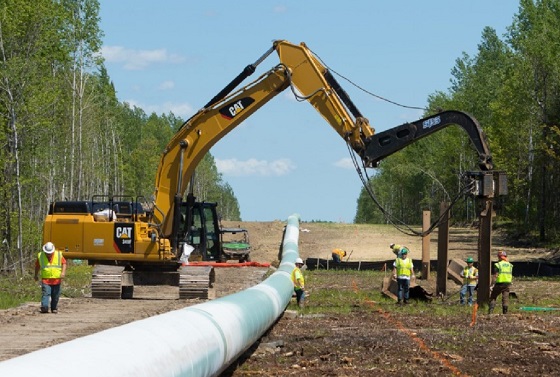International
‘I Have No Faith’: House Speaker Mike Johnson Demands ‘Accountability’ After Second Trump Assassination Attempt

Mike Johnson, Steve Doocy, Ainsley Earhardt and Brian Kilmeade
From the Daily Caller News Foundation
Republican House Speaker Mike Johnson called for “accountability” Monday following the second assassination attempt on former President Donald Trump this year, saying the country needed to “demand” better protection for the former president.
A Secret Service agent fired shots at a man with a semi-automatic rifle while Trump was playing a round of golf at the Trump International Golf Club in West Palm Beach, Florida, Sunday, with the alleged gunman being taken into custody by local law enforcement. Johnson praised the agent who thwarted the alleged attempt on Trump’s life but raised concerns about the Secret Service and “manpower allocation.” (RELATED: ‘Scary Times’: Donald Trump Jr Shares Intimate Update After Assassination Attempt)
“I got a briefing from the acting director of the Secret Service, Ron Rowe, within 90 minutes of the event. I was actually sitting with President Trump when he called. We listened to that in detail and what I understand happened is that those agents that were with him yesterday saw that barrel of that gun between the bushes on a golf course,” Johnson said. “I mean, you know, that’s a difficult thing to spot. Thankfully they did, unlike in Butler, they did not pause. They immediately pulled their weapons and fired. I think that’s why this guy, the suspect, the shooter threw the gun in the bushes and ran. Had they not been, had they not acted so quickly and decisively, we might having a different conversation here today.”
WATCH:
Trump was shot and slightly wounded in the right ear during an assassination attempt while giving a speech at a July 13 campaign rally in Butler Township, Pennsylvania, that left former volunteer fire chief Corey Comperatore dead.
“President Trump needs the most coverage of anyone. He’s the most attacked, he is the most threatened, even probably more than when he was in the Oval Office,” Johnson continued. “So we are demanding in the house that he have every asset available and we will make more available if necessary. I don’t think it’s a funding issue, I think it’s manpower allocation.”
“Fox and Friends” co-host Brian Kilmeade asked if Johnson would look into using Navy SEALs who left active duty to enhance Trump’s security, while also moving the Secret Service from under the Department of Homeland Security.
“Desperate times call for desperate measures,” Johnson said. “We will look at all those things. As you know, I put together in the task force in the immediate wake of the Butler, Pennsylvania, the shocking failures, lapses in security there. There are hearings coming up this month for that — that task force and of course, the Senate has its own homeland security committee looking into it as well. There is going to be reports and recommendations coming forward and Congress will act swiftly. We need accountability. We must demand that this job is being done. I think there are some really patriotic, great people working in the Secret Service, but it’s the leadership. We have no faith — I have no faith in Secretary Mayorkas.” (RELATED: Speaker Mike Johnson Promises ‘Full Investigation’ Into Trump Assassination Attempt)
The alleged gunman has been identified as Ryan Wesley Routh, 58, who appeared before a federal magistrate Monday after being held overnight, The New York Post reported.
Daily Caller
Zelenskyy Under Siege As Top Aide Resigns After Home Raided In Major Corruption Scandal


From the Daily Caller News Foundation
Ukrainian President Volodymyr Zelenskyy’s chief of staff, Andriy Yermak, resigned Friday after his home was raided in an ongoing corruption probe that threatens to undermine Zelenskyy’s grip on power during wartime.
Ukrainian authorities on Friday raided the home of Andriy Yermak, Zelenskyy’s chief of staff and right-hand man, as part of a sweeping corruption probe investigating Zelenskyy’s possible involvement in a $100 million scheme to defraud the nation’s atomic energy company. Yermak’s resignation comes at a time when Zelenskyy is under increasing pressure to accept a U.S.-brokered peace deal to end Ukraine’s war with Russia.
The investigation has shaken Ukrainian confidence in Zelenskyy’s administration while Russian strikes continue to rock critical infrastructure. So far, Russia has not commented on the new proposed peace deal.
As a nonprofit, we are dependent on the generosity of our readers.
Please consider making a small donation of any amount here.
Thank you!
Zelenskyy first rose to power on an anti-corruption platform in the 2019 elections, which propelled him into the international spotlight. He has enjoyed a positive global reputation during the three-year war with Russia and has been hailed by numerous Western leaders as a beacon of democracy against autocratic Russia.
Zelenskyy has so far worked with the U.S. on the proposed peace agreement, but has also expressed major reservations about what it will mean for his country. In a public address on November 21, Zelenskyy said the plan puts Ukraine in the position of “either losing its dignity or the risk of losing a key partner.”
Despite the prospect of losing U.S. intelligence sharing and weapons if Ukraine doesn’t accept the deal, Zelenskyy has been shoring up European alliances and international support, most recently signing a deal with France to obtain 100 Rafale jets for its air force. The deal also included anti-air equipment, drones and other munitions.
The Ukrainian Ministry of Foreign Affairs did not immediately respond to the Daily Caller News Foundation’s request for comment.
International
Afghan Ex–CIA Partner Accused in D.C. National Guard Ambush

In what FBI Director Kash Patel called a “heinous act of terrorism,” senior U.S. officials say they have opened a “coast-to-coast” investigation into the gunman who opened fire on two National Guard members just blocks from the White House — an Afghan man who had worked with a Central Intelligence Agency–backed paramilitary unit during the war in Afghanistan and later resettled in the United States under a Biden-era evacuation program. The case is likely to further energize the Trump administration’s already robust deportation drive and its expanded checks on immigration.
The suspect, identified as 29-year-old Rahmanullah Lakanwal, allegedly ambushed two members of the West Virginia National Guard outside the Farragut West Metro station around 2:15 p.m. Wednesday, in a busy commercial district a short walk from the presidential compound. Both soldiers remain in critical condition after emergency surgery, and the gunman was also wounded before being taken into custody, officials say.
Patel said his teams are investigating the attack as a “heinous act of terrorism,” which other officials have suggested could involve international terrorist networks, though they say the assailant appears to have acted alone.
CIA Director John Ratcliffe said Thursday that Lakanwal had previously worked alongside U.S. forces in Afghanistan. “He previously worked with the U.S. government, including CIA, as a member of a partner force in Kandahar,” Ratcliffe said, describing a unit that operated with American support until the collapse of the U.S.-backed Afghan government in 2021.
According to the Department of Homeland Security and multiple law-enforcement officials cited in U.S. media reports, Lakanwal entered the United States in September 2021 under Operation Allies Welcome, the Biden administration program that airlifted tens of thousands of Afghans who had worked with U.S. forces and feared Taliban reprisals. He later applied for asylum and was granted it after President Donald Trump returned to office. Officials say he had no known criminal history and had most recently been living in Washington State, where a relative told NBC News he was working for Amazon.
NBC, citing a family member, also reported that Lakanwal served for roughly a decade in the Afghan army, including deployments in Kandahar alongside U.S. Special Forces. Those details cut to the heart of a politically explosive question in Washington — whether a man once trusted enough to fight alongside U.S. paramilitary personnel slipped through vetting as the Afghan war ended, or whether a former ally became radicalized after he arrived in America.
Officials say Wednesday’s attack unfolded in seconds. Two West Virginia Guard soldiers, part of a domestic security deployment ordered by Trump earlier this year, were on a “high-visibility patrol” near the entrance to Farragut West when a man rounded a corner, produced a handgun and opened fire without warning.
According to detailed accounts from federal officials and witnesses, the first victim — identified by U.S. Attorney Jeanine Pirro as Sarah Beckstrom — was struck almost instantly and collapsed to the pavement. Pirro told reporters the alleged assassin was armed with a .357-caliber revolver and said that after shooting one of the victims, he “leaned over and shot him again.”
After exhausting his ammunition, the gunman allegedly grabbed the fallen soldier’s weapon and continued firing, wounding a second Guard member — Andrew Wolfe — before other troops and officers subdued him in a brief but chaotic struggle that involved both gunfire and a knife.
Reacting sharply to a reporter’s question about whether the Trump administration should have deployed National Guard units to city streets, Pirro replied that the Guard is necessary, adding that their presence “saved lives.” As officials left the news conference, Pirro brushed off a final question about whether the suspect was part of a radicalized Islamist network, saying only: “We won’t go there.”
Yesterday the Secret Service briefly locked down the White House as sirens converged on one of downtown Washington’s busiest commuter arteries. Witnesses told reporters they heard a short burst of shots followed by more sustained firing, then watched people flee into side streets and cafes as emergency vehicles arrived.
The FBI’s Joint Terrorism Task Force is leading the investigation. Law-enforcement officials say they are examining Lakanwal’s digital footprint, communications and travel history, and working with intelligence agencies to retrace his time in Afghanistan and the United States. Patel said FBI teams had conducted searches overnight on numerous electronic devices found at properties associated with the suspect — including in San Diego and in Washington State.
“You miss all the signs (of danger) when you do zero vetting,” Patel told reporters when asked if the Biden administration had erred in admitting the suspect.
In a televised address from his Mar-a-Lago resort late Wednesday, President Trump framed the attack as proof that his immigration hard line is justified. Calling the shooting “a heinous assault” and “an act of evil, an act of hatred, an act of terror,” Trump said the United States “will not put up with these kinds of assaults on law and order by people who shouldn’t even be in our country.”
He pledged to “re-examine every single alien who has entered our country from Afghanistan under Biden” and vowed that “the animal who perpetrated this atrocity” would pay “the steepest possible price.” Shortly afterward, U.S. Citizenship and Immigration Services announced that it has halted processing of all immigration requests relating to Afghan nationals — including asylum applications, permanent-residency cases and new entries — “pending further review of security and vetting protocols.”
According to an internal USCIS memo previously obtained by CBS News, the Trump administration had already directed immigration officials to review the cases of all refugees admitted during the Biden years, a cohort of roughly 233,000 people from multiple countries. Now, Afghans are facing an explicit freeze, with no end date. Meanwhile, Vice President J.D. Vance amplified the hard-line message, writing on X that the shooting proved critics of Biden’s Afghan-refugee policy wrong and declaring: “We must redouble our efforts to deport people with no right to be in our country.”
The Bureau is a reader-supported publication.
To receive new posts and support my work, consider becoming a free or paid subscriber.
-

 Alberta6 hours ago
Alberta6 hours agoFrom Underdog to Top Broodmare
-

 Energy1 day ago
Energy1 day agoPoilievre says West Coast Pipeline MOU is no guarantee
-

 Energy1 day ago
Energy1 day agoWill the New West Coast Pipeline MoU Lead to Results? Almost Certainly Not According to AI
-

 Alberta1 day ago
Alberta1 day agoWest Coast Pipeline MOU: A good first step, but project dead on arrival without Eby’s assent
-

 Carbon Tax1 day ago
Carbon Tax1 day agoCanadian energy policies undermine a century of North American integration
-

 Alberta1 day ago
Alberta1 day agoCarney forces Alberta to pay a steep price for the West Coast Pipeline MOU
-

 Alberta1 day ago
Alberta1 day agoAlberta and Ottawa ink landmark energy agreement
-

 Energy18 hours ago
Energy18 hours agoOttawa and Alberta’s “MOU” a step in the right direction—but energy sector still faces high costs and weakened competitiveness




